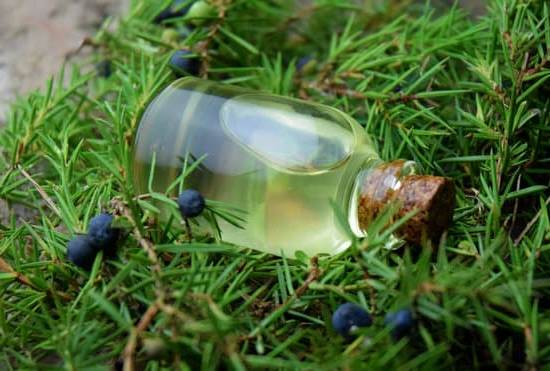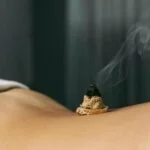Aromatherapy has gained popularity as a natural remedy for various ailments, but is aromatherapy safe for newborns? This question often concerns parents seeking alternative ways to promote their baby’s well-being. Aromatherapy involves the use of essential oils extracted from plants to improve physical and emotional health. When used correctly, it can offer benefits such as calming effects, improved sleep, and relief from common discomforts in newborns.
Parents should understand that while aromatherapy can be beneficial for newborns, there are certain precautions to consider before using essential oils on them. Newborns have delicate skin and developing immune systems, so it is crucial to be cautious with the use of aromatherapy. Factors such as the quality of essential oils, proper dilution ratios, and individual sensitivities must be taken into account to ensure safety and avoid any adverse reactions.
Before incorporating aromatherapy into your newborn’s routine, it is important to consult with a pediatrician who can provide guidance on specific essential oils that are safe for infants. Additionally, knowing how to properly dilute essential oils and following best practices when applying them will help minimize any risks associated with aromatherapy. By educating yourself on the safety measures and potential benefits of aromatherapy for newborns, you can make informed decisions regarding your baby’s well-being.
Understanding the Safety of Essential Oils for Newborns
Aromatherapy, the use of essential oils to promote well-being, has gained popularity in recent years for its potential benefits in soothing newborns and aiding in their development. However, when it comes to using essential oils on newborns, safety is paramount.
Essential oils are highly concentrated plant extracts that can be potent and may not be suitable for the delicate systems of infants. It is crucial for parents to understand the safety considerations before incorporating aromatherapy into their newborn’s routine.
To determine if aromatherapy is safe for newborns, it is vital to consider the quality of the essential oils being used. It is recommended to choose pure, therapeutic-grade essential oils that are free from additives or synthetic ingredients.
Additionally, essential oils should be diluted properly before being used on newborns to reduce the risk of irritation or adverse reactions. Diluting essential oils with a carrier oil like coconut oil or almond oil can help ensure they are gentle enough for a baby’s sensitive skin.
When considering whether aromatherapy is safe for newborns, another important factor to keep in mind is the specific essential oils being used. Some essential oils have calming properties that can help promote relaxation and sleep, while others may have antibacterial or anti-inflammatory effects.
Lavender and chamomile are popular choices for soothing babies and supporting their overall well-being. However, it is crucial to research each essential oil thoroughly and consult with a healthcare provider before using them on newborns to avoid any potential risks or allergies.
- Choose pure, therapeutic-grade essential oils
- Dilute essential oils properly with a carrier oil
- Research specific essential oils thoroughly before use
Factors to Consider Before Using Aromatherapy on Newborns
Aromatherapy has gained popularity as a natural way to promote relaxation, improve sleep quality, and provide relief from common newborn issues like colic and congestion. However, when it comes to using essential oils on newborns, there are several factors to consider to ensure their safety and well-being.
One of the primary considerations is the fragility of a newborn’s developing immune system. Newborns are more sensitive to external substances, including essential oils, which can potentially cause adverse reactions if not used properly. It is essential to remember that what may be safe for adults could be harmful to a newborn baby.
Another critical factor to consider is the quality and purity of the essential oils being used. Low-quality or adulterated oils may contain harmful chemicals or irritants that could be detrimental to a baby’s delicate skin or respiratory system. Always choose high-quality, organic essential oils specifically formulated for use with infants.
Additionally, it is crucial to take into account the specific health conditions or allergies that the newborn may have before using aromatherapy. Some essential oils can trigger allergic reactions or exacerbate certain health issues in infants. Before introducing any new essential oil to your baby’s routine, consult with a pediatrician or qualified healthcare provider to determine its safety and appropriateness for your child.
| Factors to Consider | Importance |
|---|---|
| Newborn Immune System | Crucial due to sensitivity |
| Quality of Essential Oils | Purity crucial for safety |
| Health Conditions/Allergies | Must be considered before use |
Best Practices for Using Aromatherapy Safely on Newborns
Aromatherapy, when used correctly, can provide numerous benefits for newborns. However, it is crucial to follow best practices to ensure the safety of the little ones. One of the most important factors to consider is the quality of essential oils used. Always opt for therapeutic-grade, pure essential oils that are safe for infants and free from synthetic additives or chemicals. Diluting essential oils properly is also key in ensuring the safety and effectiveness of aromatherapy for newborns.
When using aromatherapy on newborns, it is recommended to start with low dilution rates to avoid any potential skin irritation or adverse reactions. Essential oils should never be applied directly to the skin without proper dilution first.
A safe dilution ratio for babies is around 0.1% to 0.2%, which means only a few drops of essential oil diluted in a carrier oil such as coconut or almond oil should be used. Additionally, always perform a patch test on a small area of the baby’s skin before applying essential oils more widely.
Furthermore, it is important to consider the method of application when using aromatherapy for newborns. Inhalation methods like diffusers or gentle massage with properly diluted oils are generally safer than direct application on the skin. The ambient aroma from a diffuser can provide a subtle and safe way for babies to benefit from aromatherapy without direct contact with their delicate skin.
| Aspect | Recommendation |
|---|---|
| Quality of Essential Oils | Use therapeutic-grade, pure essential oils free from synthetic additives. |
| Dilution Ratio | Dilute essential oils properly (0.1% to 0.2%) in carrier oils before use. |
| Application Method | Prefer inhalation methods like diffusers or gentle massage over direct contact with skin. |
Recommended Essential Oils for Newborns and Their Benefits
Aromatherapy can be a gentle and soothing way to support the health and well-being of newborns. When choosing essential oils for newborns, it is crucial to select safe options that are appropriate for their delicate systems. Here are some recommended essential oils for newborns and their benefits:
- Lavender: Known for its calming and relaxing properties, lavender essential oil can help promote better sleep for newborns. It can also aid in soothing skin irritations or diaper rashes.
- Chamomile: Chamomile essential oil is gentle and has anti-inflammatory properties, making it suitable for calming fussy babies or alleviating digestive discomfort.
- Frankincense: This essential oil has been used for its grounding and immune-boosting effects. Frankincense can help promote a sense of peace and relaxation in newborns.
It is important to note that when using essential oils on newborns, they should always be properly diluted to ensure they are safe for use. Essential oils should never be applied directly to the skin of a newborn without dilution, as their potency can be too strong for their young age.
Moreover, always perform a patch test on a small area of the baby’s skin before widespread use to check for any adverse reactions or sensitivity. Careful consideration should also be given to the method of diffusion or application, ensuring that newborns are not exposed to excessive amounts of essential oils in the air.
When in doubt about which essential oils are safe for your newborn, it is best to consult with a pediatrician before incorporating aromatherapy into your baby’s routine. A healthcare provider can provide personalized guidance based on your baby’s specific needs and health considerations. Remember, safety should always come first when using aromatherapy on newborns.
Potential Risks and Side Effects of Aromatherapy on Newborns
Aromatherapy has gained popularity as a natural and soothing method to promote relaxation, improve sleep quality, and alleviate symptoms in both adults and children. However, when it comes to using aromatherapy on newborns, caution must be exercised due to their delicate systems. Understanding the potential risks and side effects of aromatherapy on newborns is crucial for ensuring their safety and well-being.
Skin Sensitivities
Newborn babies have sensitive skin that is more delicate and prone to irritation compared to older children and adults. Essential oils, if not properly diluted or used in excessive amounts, can cause skin sensitivities, such as rashes or allergic reactions. It is important to perform a patch test on a small area of the baby’s skin before applying any essential oils topically to rule out any potential adverse reactions.
Respiratory Concerns
Another risk associated with aromatherapy for newborns is respiratory issues. The inhalation of certain essential oils can trigger respiratory problems or exacerbate existing conditions like asthma. Strong essential oils with potent fragrances, such as eucalyptus or peppermint, should be avoided around newborns as they may cause breathing difficulties or discomfort.
Overstimulation
Using certain stimulating essential oils on newborns can lead to overstimulation of their nervous system, disrupting their sleep patterns and causing irritability. Oils like rosemary or cinnamon should be avoided as they are known to have energizing effects that may be too intense for newborns. It is essential to choose calming and gentle essential oils like lavender or chamomile when incorporating aromatherapy into your baby’s routine.
How to Dilute Essential Oils for Newborns
Aromatherapy can provide numerous benefits for newborns, but it is crucial to dilute essential oils properly before using them on such delicate individuals. Essential oils are highly concentrated plant extracts that can be too strong for newborns if used undiluted. Dilution helps reduce the potency of essential oils while still allowing their therapeutic properties to be effective. When it comes to diluting essential oils for newborns, the general rule of thumb is to use a very low concentration or percentage.
One common dilution ratio recommended for newborns is 0.1% to 0.2%, which means mixing just a few drops of essential oil with a carrier oil like coconut oil or almond oil. This ensures that the essential oil is gentle enough for the sensitive skin and developing respiratory systems of newborns. It is always better to start with a lower concentration and observe how the baby responds before increasing the strength of the diluted mixture.
When diluting essential oils for newborns, it’s important to choose safe essential oils that are appropriate for their age group. Some gentle options include lavender, chamomile, and mandarin essential oils, which are known for their calming and soothing properties.
Always opt for high-quality, pure essential oils from reputable sources to ensure safety and effectiveness when using aromatherapy on newborns. Consulting with a healthcare provider or aromatherapist experienced in working with infants can also provide valuable guidance on specific blends and dilution ratios tailored to your baby’s needs.
Consultation With a Pediatrician Before Starting Aromatherapy for Newborns
Aromatherapy has been gaining popularity as a natural way to promote relaxation and overall well-being, even for newborns. However, before incorporating aromatherapy into your baby’s routine, it is crucial to consult with a pediatrician to ensure that it is safe and appropriate for your little one.
Benefits of Consulting With a Pediatrician
Pediatricians are medical professionals who specialize in the care of babies and children. They can provide valuable insights into whether aromatherapy is suitable for your newborn based on their individual health needs and any existing medical conditions. Additionally, they can advise on the best essential oils to use, proper dilution ratios, and safe application methods.
Risks and Considerations
It is essential to discuss any potential risks or side effects associated with aromatherapy for newborns with your pediatrician. Newborns have delicate skin and developing respiratory systems, making them more sensitive to certain essential oils. Some oils may cause skin irritation or allergic reactions, while others could potentially be harmful if inhaled. Your pediatrician can help you navigate these considerations and ensure the safety of your baby.
Guidance on Safe Usage
Consulting with a pediatrician before starting aromatherapy for newborns also provides an opportunity to receive guidance on how to use essential oils safely. Pediatricians can recommend specific brands known for their purity and quality, as well as proper dilution techniques. They may also advise on the best methods of application such as diffusers or massage oils tailored to your baby’s age and health status.
Conclusion
In conclusion, while aromatherapy can offer numerous benefits for newborns, it is essential to approach its use with caution and care. The safety of essential oils for newborns depends on various factors such as the type of oil, dilution ratios, and individual sensitivity. Understanding these factors and consulting with a pediatrician before incorporating aromatherapy into a newborn’s routine is crucial to ensure their well-being.
When using aromatherapy on newborns, it is important to consider the potential risks and side effects that may arise. Proper dilution of essential oils and adhering to best practices can help minimize these risks. Additionally, sticking to recommended essential oils that are gentle and safe for infants can further support a positive experience with aromatherapy.
Ultimately, the question “Is aromatherapy safe for newborns?” is one that requires careful consideration and informed decisions. By following guidelines for safe usage, seeking advice from healthcare professionals, and staying attuned to the specific needs of each individual baby, aromatherapy can be a beneficial tool in promoting relaxation, soothing discomfort, and enhancing overall well-being in newborns.
Frequently Asked Questions
Are Aromatherapy Diffuser Safe for Newborns?
Aromatherapy diffusers can be safe for newborns if used properly and in moderation. It is important to keep the diffuser out of reach, use child-safe essential oils, and ensure proper ventilation in the room.
What Essential Oils Are Good for Newborns?
Some essential oils that are considered safe for newborns include lavender, chamomile, and rose oil. These oils are known for their calming and soothing properties, which can be beneficial for newborns’ sleep and relaxation. Always dilute essential oils appropriately before use.
Is Peppermint Oil Safe for Babies to Breathe?
Peppermint oil is generally not recommended for babies to breathe, especially young infants. The strong scent of peppermint oil can be too overwhelming for their sensitive respiratory systems and may cause breathing difficulties or irritations. It’s best to consult a healthcare professional before using it on or around babies.

Are you looking for a natural way to improve your health and wellbeing?
If so, aromatherapy may be the answer for you.





